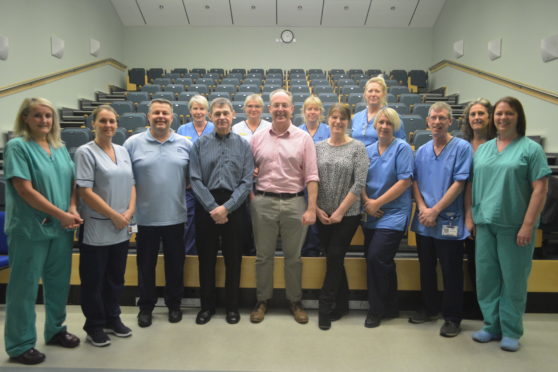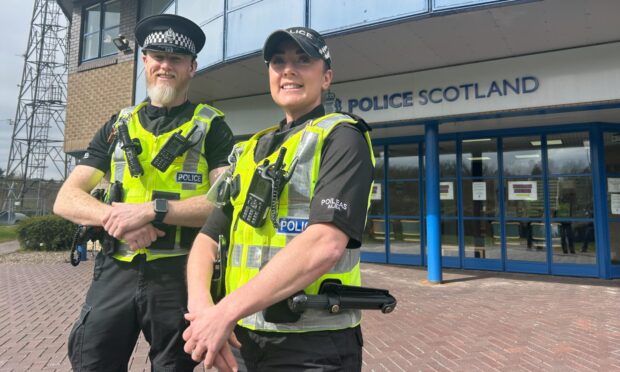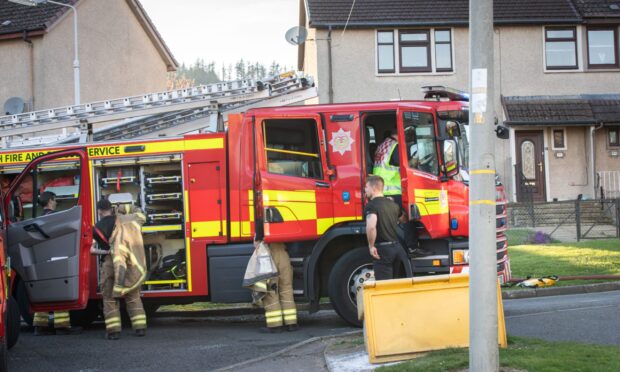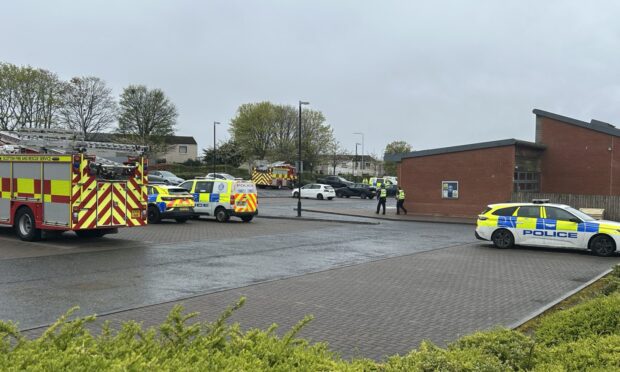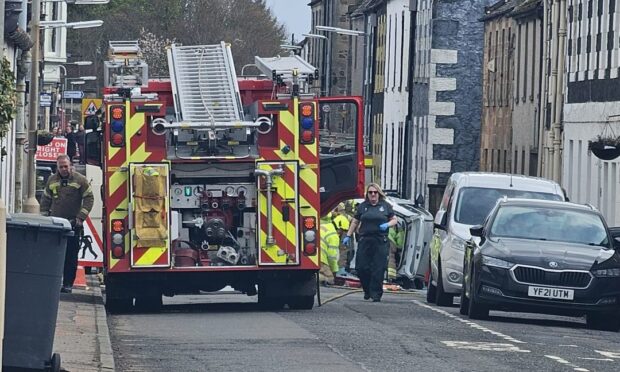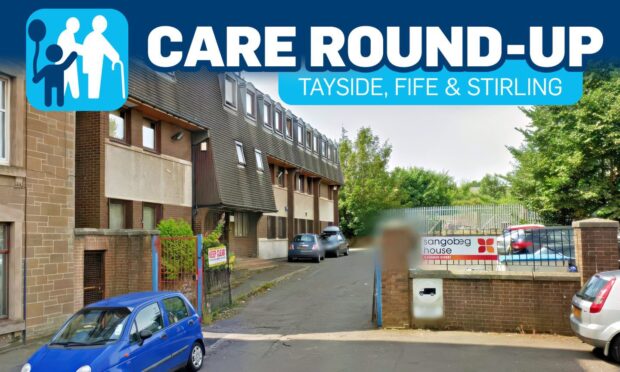NHS Fife has become the first health board in Scotland to perform hip replacements as day surgery.
Patients receiving new hips in Fife usually have to stay in hospital for around three days.
But the new technique, which is suitable for around 15% of patients, can slash this to under 12 hours.
It can be done so quickly thanks to a system developed in Copenhagen which veers from using a traditional spinal anaesthetic.
Numbing only the capsule, tendon and ligaments around the hip joint means the muscles are still working and the patient, in general, can walk soon afterwards.
First to receive the revolutionary new treatment was Kennoway man Michael Sullivan.
He arrived at 7.30am, had his operation two hours later and was back at home at 6.30pm.
It was Mr Sullivan’s second hip replacement and he said: “The first surgery I had, I was a bit apprehensive because you did not know what you were about to go through, but the second time was completely different.
“The first surgery I felt sick afterward and I lay in bed for about four hours for the anaesthetic to wear off and by then, it was too late to start doing any exercises.
“The second operation I was up within an hour and walking about – there was no pain, I never felt nauseated and I was able to walk a lot freer.
“The last time I was listening to Beatles music during the surgery after hearing horror stories – but this time it was the best two hours sleep I have had in years.”
NHS Fife’s director of surgery Edward Dunstan carries out around four joint replacements each day.
He said: “The new technique gets the legs back to work sooner, reducing the risk of losing muscle mass, clots, and increasing oxygen saturation in the blood, which generally helps patients feel much better.”
Since Mr Sullivan’s surgery, NHS Fife has carried out a series of similar operations.
Day case hip surgery is suitable for around 15% of patients, but can significantly reduce their stay in hospital.
